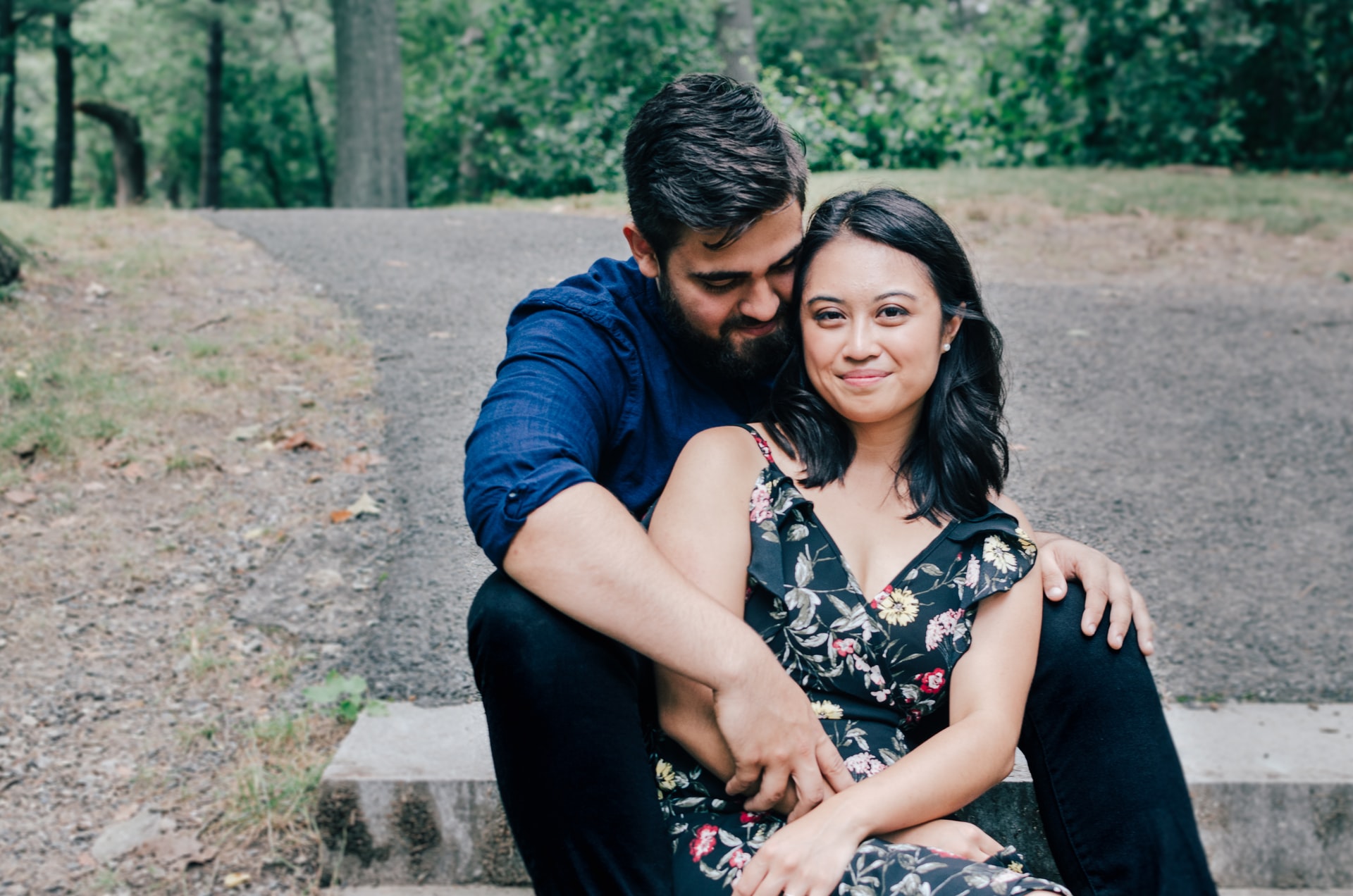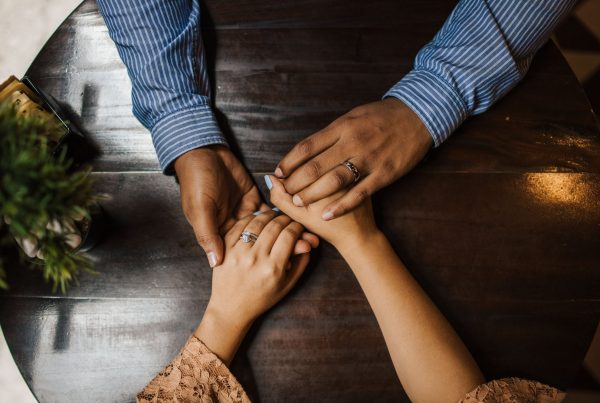There is so much to get used to when you move from being a dating or engaged couple to being a married couple. Sharing your home, money, time and decision-making are some of the most obvious ones. In addition to that, our priorities do change when we’re committed to someone else in body, soul, and heart. This means a change in lifestyle or past habits.
For example, while your spouse is often your best friend, you may also have grown up with other close friends – even those of the opposite gender. Maybe they’ve known you longer than your own spouse has. If talking to them often is a lifestyle habit, it can feel a bit strange to cut down on that significantly.
Or what about household responsibilities? Maybe you’re used to the idea of practising equality and shared labour at home. Or splitting finances equally. And then you get married and find that things don’t always happen the way you want it to. How do you give your best to your marriage, in a selfless manner – while also ensuring that both of you are being listened to and that no one feels taken for granted?
Continuing from our previous article “Malaysians Talk About Having Boundaries in Marriage“, here are more stories of how different couples have practised putting necessary boundaries in place in order to protect their marriage. When two people have a clear idea about boundaries for themselves and their marriage, the marriage thrives as well. We hope you find this useful and encouraging!
On Personal Space
My wife and I are poles apart in many areas of interest, however we have also found a few areas of common ground. We have developed these interests over the years to ensure that we are able to enjoy and celebrate each other rather than have more reasons to pursue our own interest.
For example “She lives to eat and I eat to live”, however prior to marriage she never cooked. She enjoys looking for the latest gourmet dishes or restaurants to indulge in. I on the other hand am happy going back to the same place as long as the food is good. I also enjoy experimenting with my culinary skills and will satiate myself no matter what the outcome is. We both like food but just differently.
So every now and then I encourage her to go out with other fellow foodies to try something, knowing that she would probably enjoy the experience more with them than with me. However over the last six years my wife has turned herself into a Masterchef and I have learnt to perfect a number of signature dishes.
We have used this common interest for food and hospitality which we enjoy with friends more frequently rather than creating a necessary boundary for us to manage.
– David, 40s, Malaysian living abroad

Photo by Everton Vila on Unsplash
My husband and I have almost zero common interest and we both love leading very independent lives. We are always encouraging one another to go out and do our own hobbies by ourselves / with our own friends and never once feel resentful of the other.
When I first became a mother, I was actually struggling to carve out time for myself to go out and get a breather. He surprised me by contacting a friend and arranging for a night out where it was just me and my friends. While we love spending time with each other, we also recognise that we are our own unique individuals and it is extremely important to do things separately and come back happy and energized and eager to contribute to our marriage.
– Tasha, 30s, Petaling Jaya
We are fortunate that most of our hobbies and interests overlap. Simply put, my wife is also my best friend who I enjoy doing things with. The relationship has matured to the point that we enjoy our quiet time together too.
However, we do respect that we do want our personal time and space from time to time, and openly communicate that we need this space. I enjoy climbing and cycling, and my wife knows it’s one of my outlets to manage stress. I feel valued that she supports my pursuits to improve, which cascades into my day-to-day interactions. During the pandemic era, our hobbies are more limited and we keep ourselves positive by enjoying the tiny details in life.
– Ridhwanuddin, 30s, Malaysian living abroad
Also read: What Are Boundaries in Marriage?

Photo by Zoriana Stakhniv on Unsplash
On Conflicting Emotions
We’ve been married for 12 years, and we used to have very clear cut roles. I cooked, he washed up. He did the laundry, I put them away. Two years ago, he changed a lot. He was finally diagnosed with depression and anxiety last year. With therapy and medication, he is able to cope better, but it is still a struggle for him. We know that his mental illness is neither of our fault, but we also need to acknowledge how it has affected our marriage. We have had to redefine our roles and boundaries.
I learnt to respect his boundaries. It used to upset me when he left in the middle of dinner, but now I know he needs that 15 minutes to just do his breathing exercises to calm his anxiety attack. We are honest about how we each feel, but we know that when it comes to deeper issues and darker emotions, I cannot ‘rescue’ him, and that he has his counsellor and psychiatrist for that.
I have learnt to accept my own limitations. We got a maid to clean the house once a week. On difficult days, I order food delivery instead of cooking. – Meg, 40s, Kuala Lumpur
On Finances
When it comes to finance, my husband and I have decided from the start that we would only have one joint bank account where our money is managed together. This came from a place of trust and the understanding that we are now one as a married couple. I trust him fully and he feels the same way towards me.
Before we were married, we discussed how we would manage the money together, but we set a limit to how much we would be able to spend without needing to ‘ask’ permission from each other. If the amount was beyond that limit, we would just check in and be accountable to each other so we know how the funds are used. So we still have freedom on how we spend our money but we know we can’t just splurge on large, expensive items without consulting each other!
I think it works for us because both parties have a similar mindset regarding the use of money (where no one person is a huge spender) and we are both pretty responsible as well.
– Grace, 40s, Petaling Jaya

Photo by alexandra lammerink on Unsplash
On Friendships
On friendships and business dates, our calendars are shared. He knows where I am and I know where he is, and with whom. We update our ongoings at all times.
We leave our past where it is and it never gets revisited. Good friends are kept close. Some shared and some are personal. I believe that we need to be with people who were once like “family” in school, high school, college – those whose lives mattered before we were a unit. It is something sacred to revisit and appreciate. A space that is honored and left to the spouse to enjoy when the crowd comes around to visit. I never participate and I don’t really want to. They have memories I don’t share but I know it keeps him happy – and that matters more.
So, I think its about understanding and knowing our roles. Playing our part and honouring it at 100%. I guess we both believe that we should never draw invisible lines that separates us but know what needs to be done because. Communication has become key and something we factored into our marriage as we mature into it. We’re not better halves but a complete whole that complements and enhances each other. A unit.
– Syireen, 40s, Kuala Lumpur
I value being real with my friends, because I find it personally helpful when others are too. However since being married, I had to learn how to know what to share and what not to. Even if I mean well, sharing too much can be damaging to my husband’s reputation, his confidence, and the level of respect and trust that we ought to be having for each other as husband and wife.
I started filtering my thoughts more before I speak. I ask myself, “Is this issue really something that I cannot discuss with my husband alone? Do I really need to bring a third-party into it?” And even if insight from a trusted third-party is needed, I remind myself that it isn’t because “I” need it, its because “we” might find it helpful. So just making the habit to shift my perspective from “I” to “us / we” helps me be more careful with what I share, or the choice of words I use if I really have to be more specific.
I noticed this has helped my husband and I improve in our conflict management. We end up having a really good conversation every time we give ourselves the chance to do so. Hearing each other out helps us understand the other person better, build more trust, and it has helped us grow more in love together than before. It also keeps teaching me what a “marriage” really means. I guess that’s the beauty of marriage. Learning to be a team even though you were born a single player. I think we get better over time.
– Sarah, 30s, Petaling Jaya
Recommended read: Creating Your Family Culture Despite Diverse Upbringing
Featured image by Kelly Sikkema




